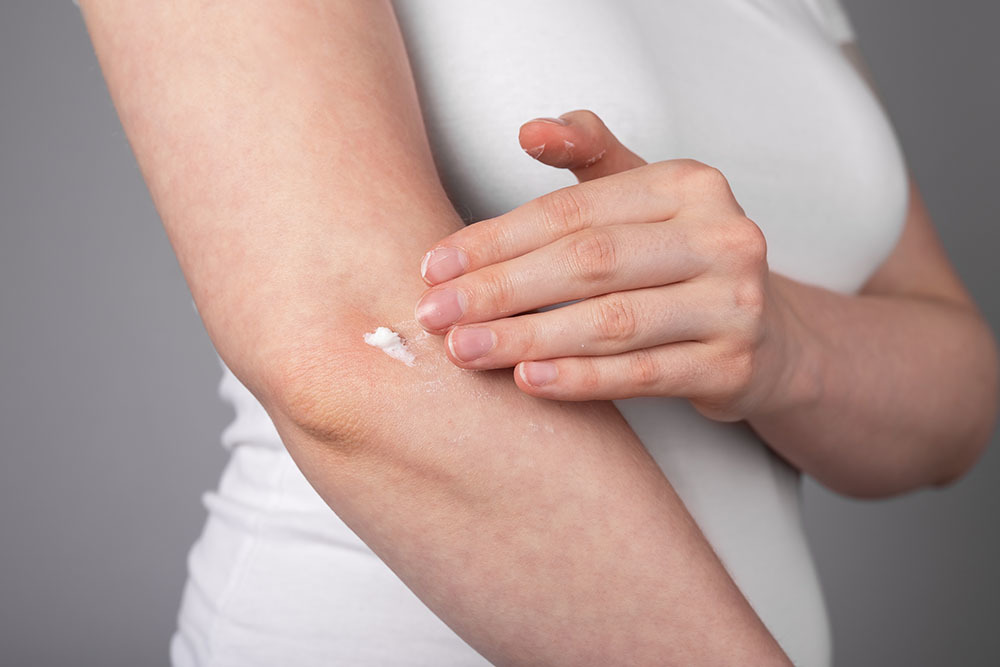
Some people experience an abrupt worsening of their atopic dermatitis when the cold wind begins to blow. The scratched area gets red, swollen, and pus leaks as the itching worsens. This is because atopic skin is highly irritated by external factors like dry air, temperature fluctuations, and indoor heating. Dry skin is not the only symptom of seasonal atopic dermatitis. It’s a long-term inflammatory condition where the skin’s barrier function is compromised, the skin becomes more sensitive to outside stimuli, and the immune system overreacts.
Temperature and humidity fluctuate quickly during the seasonal transition, which makes it easier for the skin barrier to be weakened. Particularly irritating to the skin is the process of perspiration followed by drying because of temperature variations. The issue is that many people apply more moisturizer in response to worsening atopic dermatitis without considering their lifestyle. However, the condition can worsen with just one bad habit in daily life.
Too much washing is a common taboo habit. Using harsh detergents or taking several showers throughout the day quickly breaks down the skin barrier. Frequent washing brought on by itching exacerbates the problem. Additionally, you should refrain from using hot water to wash. The moisture layer breaks down, and skin lipids are washed away more quickly at higher temperatures. 32 to 36 degrees is the ideal water temperature.
Alcohol hand sanitizers and frequent hand washing are two more habits that are simple to ignore. The Korean Dermatological Association advises that “mild soap and physical hand washing are recommended for patients with hand atopy, and alcohol sanitizers should be minimized.” This is especially true since the number of patients with worsened hand skin has increased as hygiene practices have been reinforced since COVID-19.

During the seasonal transition, indoor heating and humidity control failures are major factors. When the heater is on for a long time, indoor humidity drops below 20-30%, worsening atopic skin. The World Health Organization recommends an ideal 40-60% indoor humidity for atopic patients. Indirect humidification using a humidifier or a wet towel is effective.
Dermatologists advise concentrating on lowering external stimuli and repairing the skin barrier to manage atopic skin during the seasonal transition. Your first step should be changing your shower routine and cleaning without irritating yourself. Showering once daily for less than ten minutes is advised, as is using hypoallergenic soap or cleanser. Moisture loss can be avoided by applying a moisturizer three minutes after showering.
Selecting a moisturizer is also crucial, and glycerin, hyaluronic acid, and ceramide-containing moisturizers are advised. Because they improve skin penetration, moisturizers based on lipid nanoparticles have recently drawn interest as a viable substitute. Seasonal atopy is also exacerbated by wearing fur or synthetic fiber clothing, excessive stress, and irregular sleep patterns. Meditation, mild exercise, and a regular sleep schedule are essential because stress, in particular, causes the release of cortisol, which exacerbates skin inflammation.

Dry weather alone is not the only cause of atopic dermatitis during the transitional season; poor lifestyle choices and environmental changes also play a role. Preserving the skin barrier and reducing irritation are the most crucial factors. Regularly following medically proven management techniques can steadily protect your skin throughout the changing seasons.










Most Commented